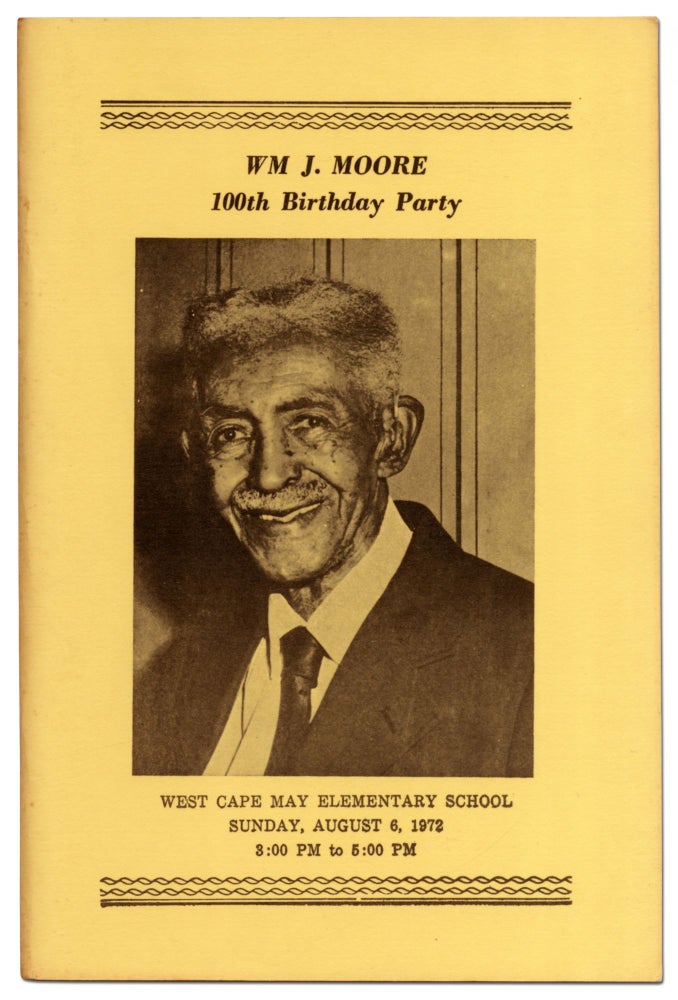[Cape May, N.J.? Albert Hand Co.?], 1972.
Price: $350.00
Softcover. First edition. Octavo. [52]pp. Stapled yellow wrappers with photographic portrait of Moore on front wrap. Laid in is a song sheet with lyrics written for the party employing music from popular songs consisting of two stapled pages printed rectos only. Foxing on foredge, modest offsetting on rear wrap, else very good or better. Locally published program for Moore's 100th birthday celebration in 1972. Text contains a biographical statement, the program for the event, ads from well-wishers, solicitations for a scholarship fund, poetry dedicated to Moore by his former students, etc.
Moore was born in West Chester, Pennsylvania in 1872, the son of freed slaves (in an autobiographical sketch he noted that four of his great grandparents were of African descent, three were of Native-American descent, and one was white). He lived happily enough in that relatively tolerant and predominantly Quaker town, and later attended and graduated from Howard (then Howard Normal School) in 1892. Upon his return from college Moore became the first black teacher in West Cape May. Working Summers at a local country club and golf course beginning in the earliest days of the 20th Century, Moore became almost by default the club's tennis instructor, and by doing so became, according to at least a couple of sources, the first African-American tennis pro in the U.S. He continued to teach both school and tennis for more than half a century.
On Moore's 100th birthday (which he attended on a stretcher because he had just broken a bone playing tennis a few days earlier) the tennis courts in Cape May were renamed the William J. Moore Tennis Center. He died about a year later in 1973. At the time of his death he was the oldest living graduate of Howard University. In 1978, when the Tennis Center was under threat of being sold for the land, opposition to the deal resulted in an extension of the lease. Presumably, this posthumous second edition was published by his family to commemorate the event.
The history of African-American and enslaved people in Cape May is interesting. The town was traditionally (and is) a prominent vacation spot, particularly for Southerners. Located at the southernmost tip of New Jersey, Cape May's residents maintained a tradition of owning both African and Native American slaves from the earliest days of its founding by yeoman whaler's in the mid-1600s. The adjoining town of West Cape May was both a stop on the Underground Railroad, and became a refuge for both freed and escaped slaves, and is one of the earliest predominantly black communities in the U.S. Harriet Tubman reportedly worked as a domestic at Congress Hall, one of the grand hotels in the city of Cape May, that continues to operate to this day.
*OCLC* locates three copies of this autobiography.
Item #412125


